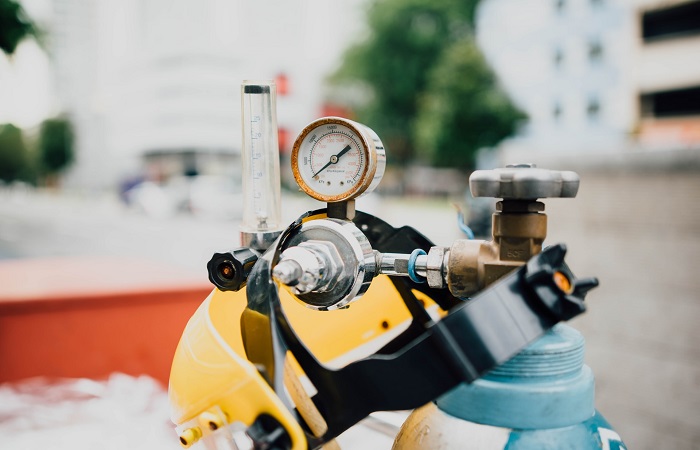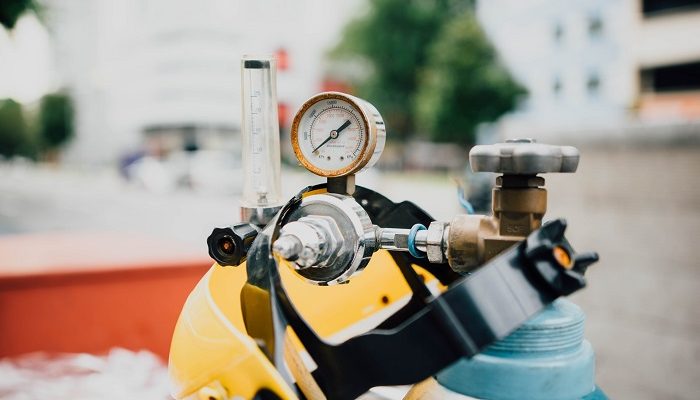
Ethyne, a highly flammable hydrocarbon gas composed of two carbon atoms and two hydrogen atoms, plays a vital role in various industrial applications, particularly welding and cutting. It’s widely used due to its high heat release during combustion, making it an efficient choice for metalwork. However, safe handling, storage, and transport of acetylene gas cylinders are paramount. In this article, you will delve into the guidelines and best practices for ensuring the safe use of ethyne.
Handling These Gas Cylinders
When it comes to handling these gas cylinders, safety should always be the top priority. Here’s what you need to know to ensure a safe handling process:
- Use Personal Protective Equipment (PPE): Before handling these cylinders, you must equip yourself with the appropriate Personal Protective Equipment (PPE). This includes safety goggles to shield your eyes from potential hazards, gloves to protect your hands, and protective clothing to minimise exposure to the gas. Adhering to these precautions is vital for your safety.
- Secure the Cylinder: These cylinders should always be kept in an upright position to prevent accidents. To achieve this, use dedicated cylinder stands or carts designed explicitly. Ensuring the cylinders are properly secured is crucial, as any mishandling or tipping over can result in damage and potential gas leaks, posing serious safety risks.
- Avoid Rough Handling: Treating these cylinders with the utmost care is essential. Avoid any form of rough handling, such as dropping, banging, or rolling them. Even minor damage to the cylinder’s structure can lead to leaks or ruptures, which can be hazardous. Always exercise caution when moving or transporting these cylinders.
- Check Labels and Pressure Ratings: Before any use or manipulation, carefully inspect the cylinder labels. Ensure that the label indicates that you are handling such gas. Additionally, check the pressure rating to confirm that the cylinder suits your intended application. Using a cylinder with an incorrect pressure rating can lead to unsafe conditions and potential accidents.
Following these comprehensive guidelines for handling these gas cylinders can ensure a safe working environment and minimise the associated risks. Prioritising safety at every process step is essential to protecting yourself, your colleagues, and the surrounding environment from potential hazards.
Storage of Ethyne Gas Cylinders
Proper storage of ethylene cylinders is crucial to mitigating the risks of gas leaks and explosions.
- Ventilation: Store these cylinders in a well-ventilated area to disperse any gas that may escape in case of a leak. Store them in confined spaces or areas with adequate ventilation.
- Secure Location: Protect these cylinders from open flames, heat sources, and flammable materials. Store them in a cool, dry, dedicated area, segregated from incompatible substances.
- Safety Caps: Always keep cylinder safety caps in place to protect the valve from damage when the cylinder is not in use.
- Regular Inspections: Conduct periodic visual inspections of the cylinders for signs of damage, rust, or corrosion. Remove any damaged cylinders from service.
Transportation of These Gas Cylinders
Transporting these cylinders requires adherence to strict safety measures:
- Proper Vehicle: Ensure you use a vehicle specifically designed to transport gas cylinders with secure restraints to prevent movement during transit.
- Orientation: Keep these cylinders in an upright position during transport. Secure them to prevent tipping or rolling.
- Ventilation: Vehicles used for transporting these cylinders should be well-ventilated to prevent gas buildup in the event of leaks.
- Safety Regulations: Familiarise yourself with local and national regulations governing the transportation of hazardous materials, including these cylinders.
In Australia, the safe handling, storage, and transport of these gas cylinders are governed by various regulations and standards, including those set by Safe Work Australia and state-specific occupational health and safety authorities. It is imperative to stay informed about these regulations and ensure compliance to protect yourself and the environment.

